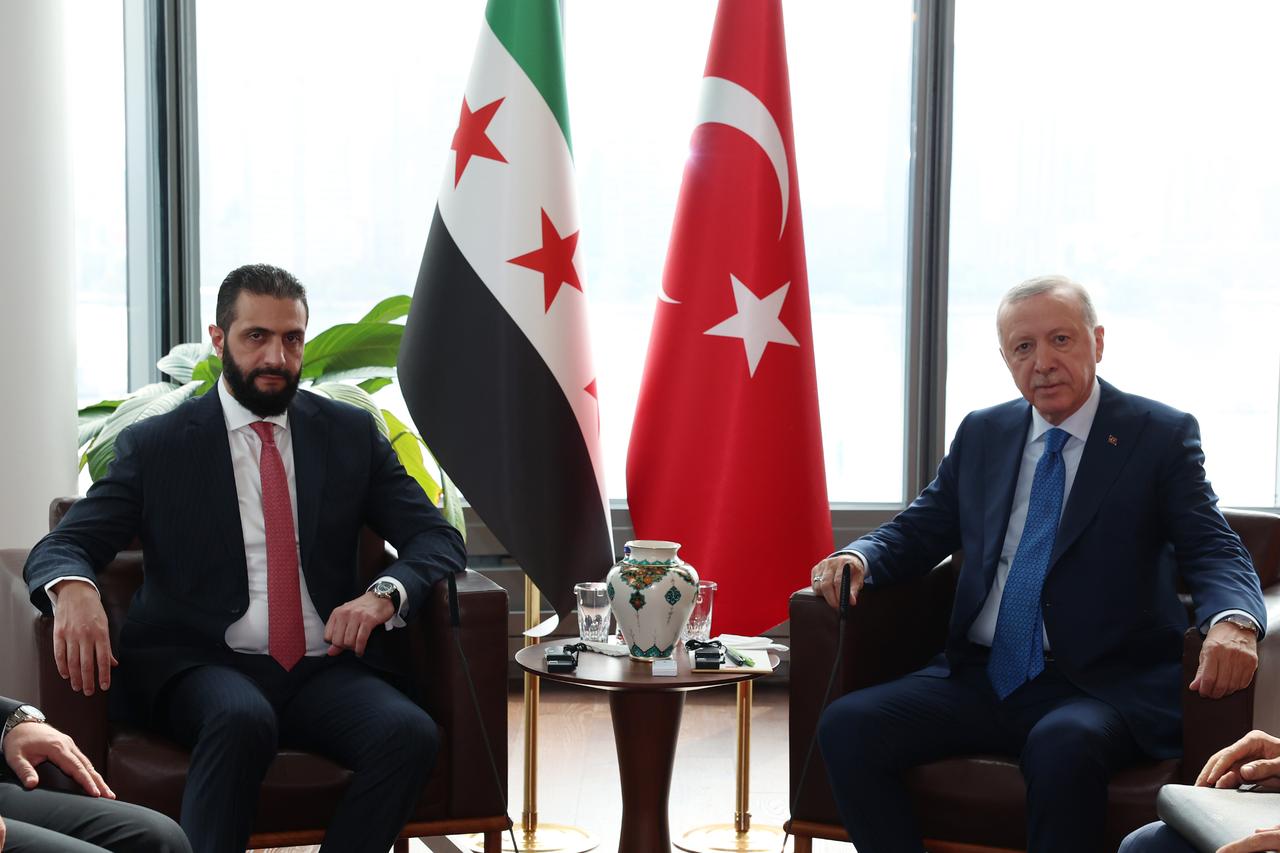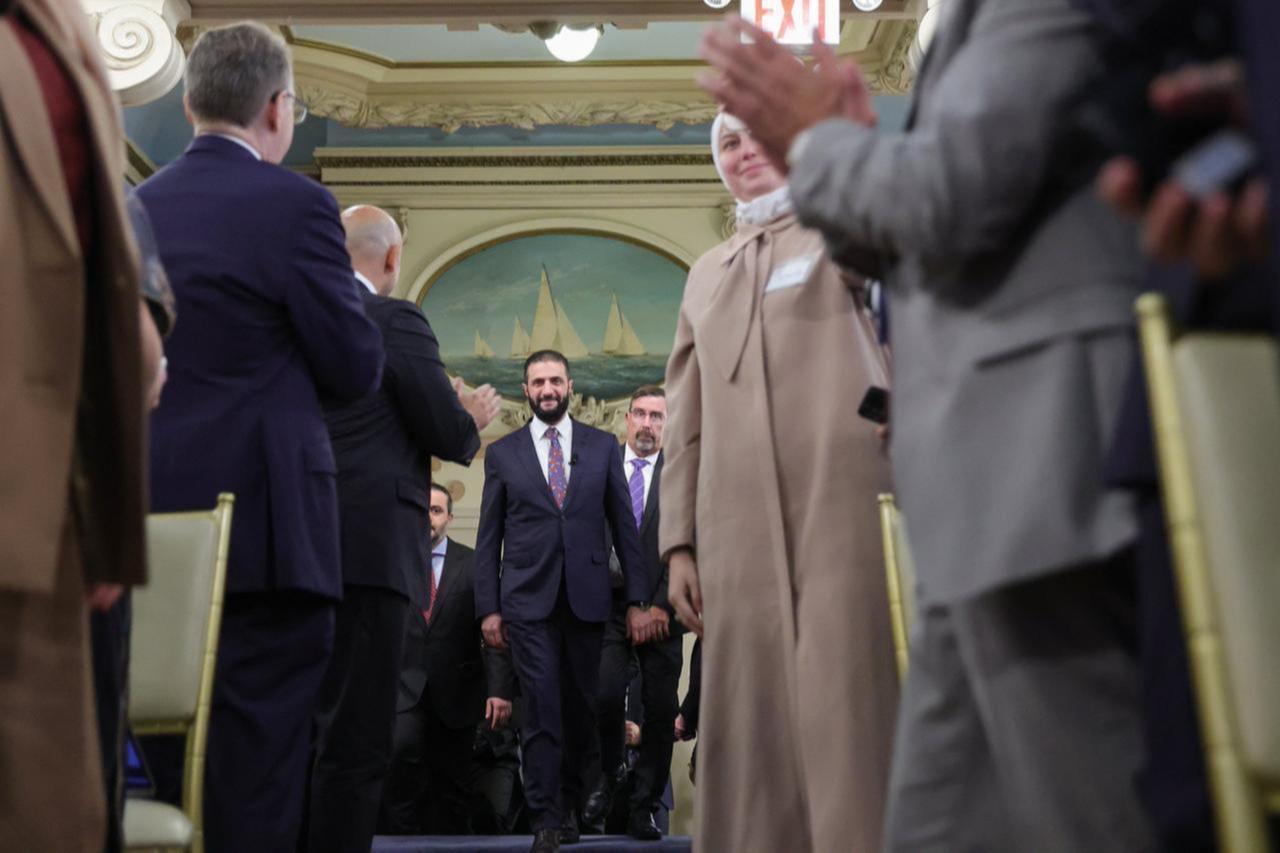
President Recep Tayyip Erdogan held talks with Syrian President Ahmed al-Sharaa in New York on Wednesday, marking a significant diplomatic encounter as Syria's new leadership works to rebuild international relations following decades of isolation.
The meeting took place at the Turkish House during Erdogan's visit to attend the 80th United Nations General Assembly. Syrian Foreign Minister Asaad al-Sheibani and Turkish intelligence chief Ibrahim Kalin also participated in the discussions.
The diplomatic engagement comes as Sharaa, who assumed power after the fall of Bashar al-Assad's regime last December, seeks to reintegrate Syria into the global community. His presence at the UN General Assembly represents Syria's first participation at the head-of-state level since 1967, underscoring the dramatic shift in the country's political landscape.
In a separate interview with the Middle East Institute in New York, Sharaa emphasized Syria's commitment to territorial integrity while addressing regional security concerns.
"The unity of Syria remains at the core of our security and stability policy," Sharaa told state-run Al-Ikhbariya TV. "Any division would harm neighboring countries and disturb regional security."
The Syrian president's comments reflect ongoing challenges facing the country, including the presence of the terrorist group YPG-led SDF in the northeastern regions. Sharaa suggested that "Washington can assist in integrating the SDF with Syrian forces."
Regarding previous tensions in the southern Suwayda province, Sharaa acknowledged that "all parties had some mistakes" but emphasized that Syria has "chosen reconciliation" as its path forward.
The Syrian leader also addressed diplomatic efforts with Israel, stating that "the success of any agreement with Israel paves the way for other agreements to spread peace in the region." However, he insisted that "Israel must accept the deployment of international forces as it was stated in the 1974 (disengagement) agreement."

Following Assad's fall, Israel has launched hundreds of strikes targeting Syrian military sites and expanded its occupation of the Syrian Golan Heights by seizing the demilitarized buffer zone, violating the 1974 disengagement agreement.
Damascus now pursues a policy of maintaining equal distance from all countries, with Sharaa noting that "my visit to New York marks Syria's return to the international community." The meeting with Erdogan represents a crucial step in this diplomatic rehabilitation, particularly given Türkiye's significant influence in regional affairs and its border with Syria.
Following the meeting, Türkiye's Communications Directorate released an official statement outlining the key topics discussed during the bilateral talks.
According to the statement, the discussion covered bilateral relations between Türkiye and Syria as well as regional issues. President Erdogan expressed his expectation that all sanctions against Syria should be lifted as soon as possible and affirmed that Türkiye maintains a positive approach toward all initiatives aimed at preserving Syria's territorial integrity and sovereignty.
The Turkish president also emphasized that the SDF must comply with the March 10 agreement, noting that Türkiye closely monitors all developments in the region and that support for Syria will continue with increasing momentum.